Discover the Top 10 AI Literature Review Generator
Uncover the top 10 AI literature review generators for creating comprehensive, high-quality literature reviews on any research topic.

Are you a researcher or student who often feels overwhelmed by the sheer volume of literature you need to review? Conducting a comprehensive literature review can be a daunting and time-consuming task.
Competitor analysis is a critical component of strategic planning that helps businesses understand their competitive environment. - Sam Sami, CEO @Takticall
It involves sifting through countless academic papers, summarizing key findings, and identifying trends and gaps in the research. This is where AI literature review generators come to the rescue.
These advanced tools leverage artificial intelligence to streamline the process, saving you valuable time and ensuring that your literature reviews are thorough and insightful.
In this post, we will delve into the top 10 AI literature review generators available today.
These tools are designed to assist you write a literature review, making your comprehensive review research process more efficient and manageable.
We will highlight their unique automated features and benefits, with a special emphasis on why v0 Report stands out as the best AI literature review generator on the market.
Whether you're a seasoned researcher or a student just starting, these AI tools can transform how you approach your literature reviews, scholarly articles, and comprehensive studies, making the process of process of creating a literature faster, easier, and more effective.
What is an AI Literature Review Generator?
An AI literature review generator is a powerful AI tool that is powered by the most advanced AI models, including algorithms and machine learning, to help researchers manage and understand large amounts of academic literature. It scans vast collections of academic papers, articles, and other scholarly sources, saving researchers from manually reading each document.
After scanning, the AI generates concise summaries of each piece of information into a structured review literature, making it easier for researchers and students to grasp the main points and findings without having to read the full depths of comprehensive studies.
The Ai literature review generator then automates the process of creating information from various sources, compiles this information, identifying scholarly resources, relevant literature trends, and existing literature gaps, helping students and researchers see the bigger picture in their field of study and understand how different pieces of existing research relate to one another.
Designed to save researchers significant time and effort, these AI literature review generator is designed to focus on analysis and interpretation of a structured literature review.
Whether conducting a literature review for a thesis, dissertation, or research project, an AI literature review generator can be an invaluable analysis and evaluation of scholarly resources.
The Top 10 AI Literature Review Generators
1. v0 Report
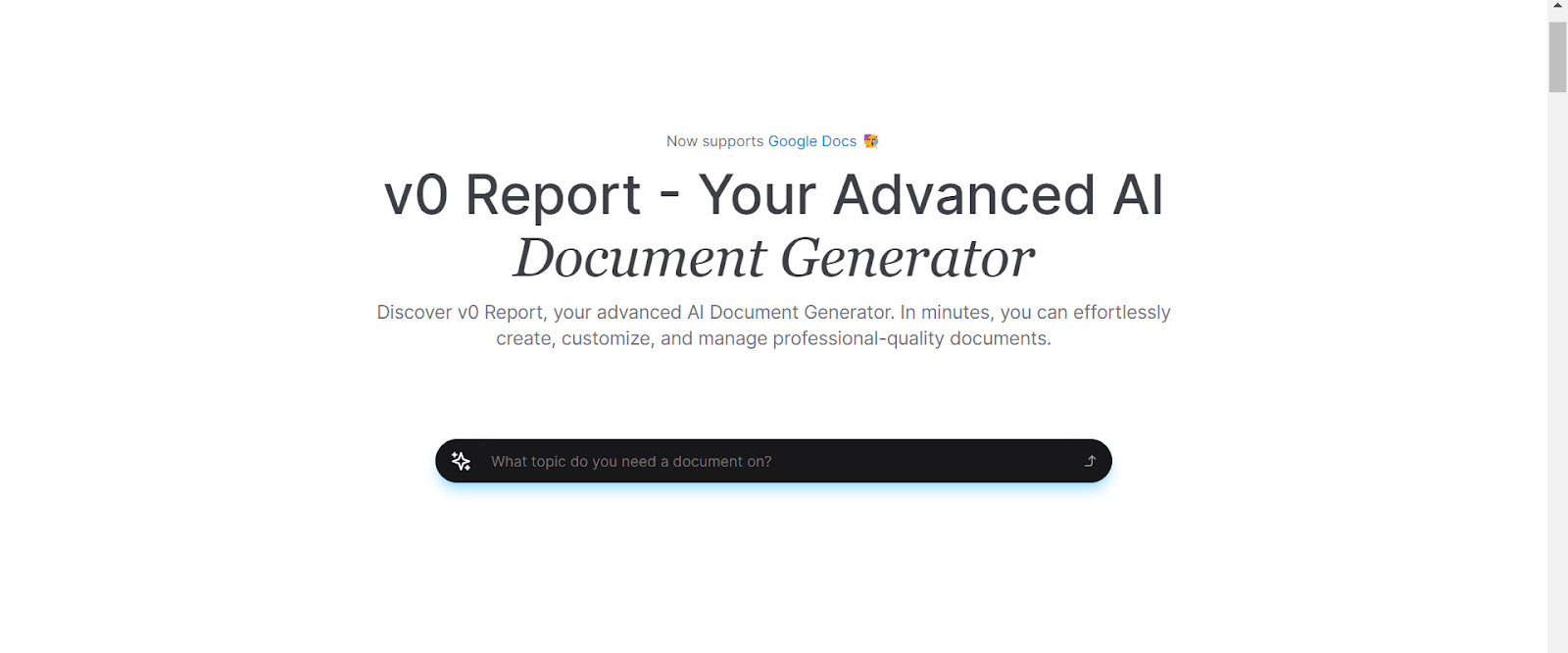
v0 Report stands out as the best AI literature review generator. It excels in accuracy, comprehensiveness, and user-friendliness. With advanced AI algorithms, it not only summarizes articles but also provides detailed insights and trends, making it a top choice for researchers worldwide.
Unique Benefits:
- Ensures highly precise and reliable summaries and insights, crucial for supporting research work.
- Accessible to researchers at all levels, from students to seasoned academics.
- Goes beyond simple summarization by identifying and highlighting emerging trends in the literature.
- Streamlines the literature review process, reducing time and effort.
- Known for delivering accurate data and high-quality, insightful literature reviews, evaluation of scholarly articles, earning widespread adoption in the academic community.
2. Litmaps
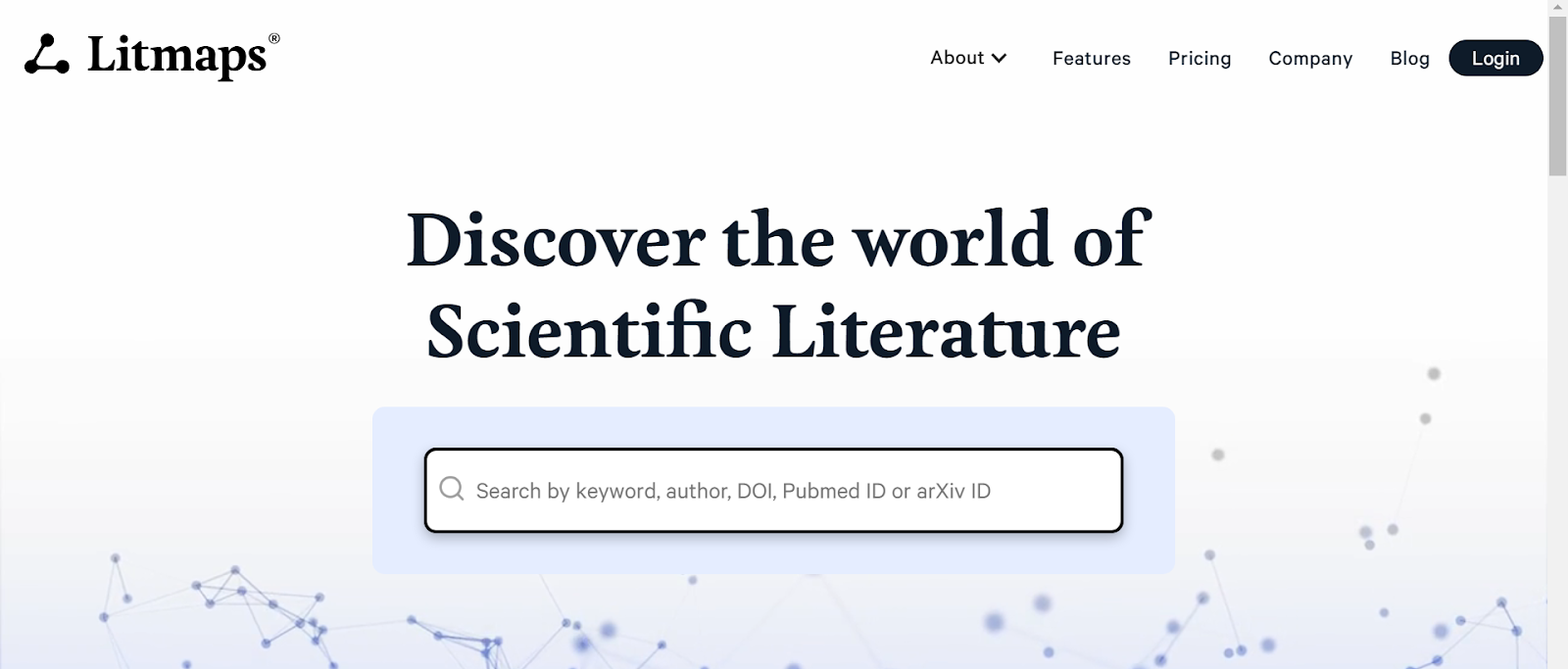
Litmaps allows users to create dynamic literature maps. It tracks the latest papers and visualizes methodology connections between them, making it easier to follow the evolution of research topics over time.
Unique Benefits:
- Litmaps lets you create interactive maps that show the relationships between different research papers. These maps are constantly updated as new papers are published, providing a clear visual representation of how research topics evolve.
- Stay up-to-date with the latest research in your field. Litmaps tracks new papers as they are published, ensuring you never miss important developments.
- Set up alerts for specific topics or keywords. Litmaps will notify you when new papers that match your criteria are published, helping you stay informed on the topics that matter most to you.
3. Scite
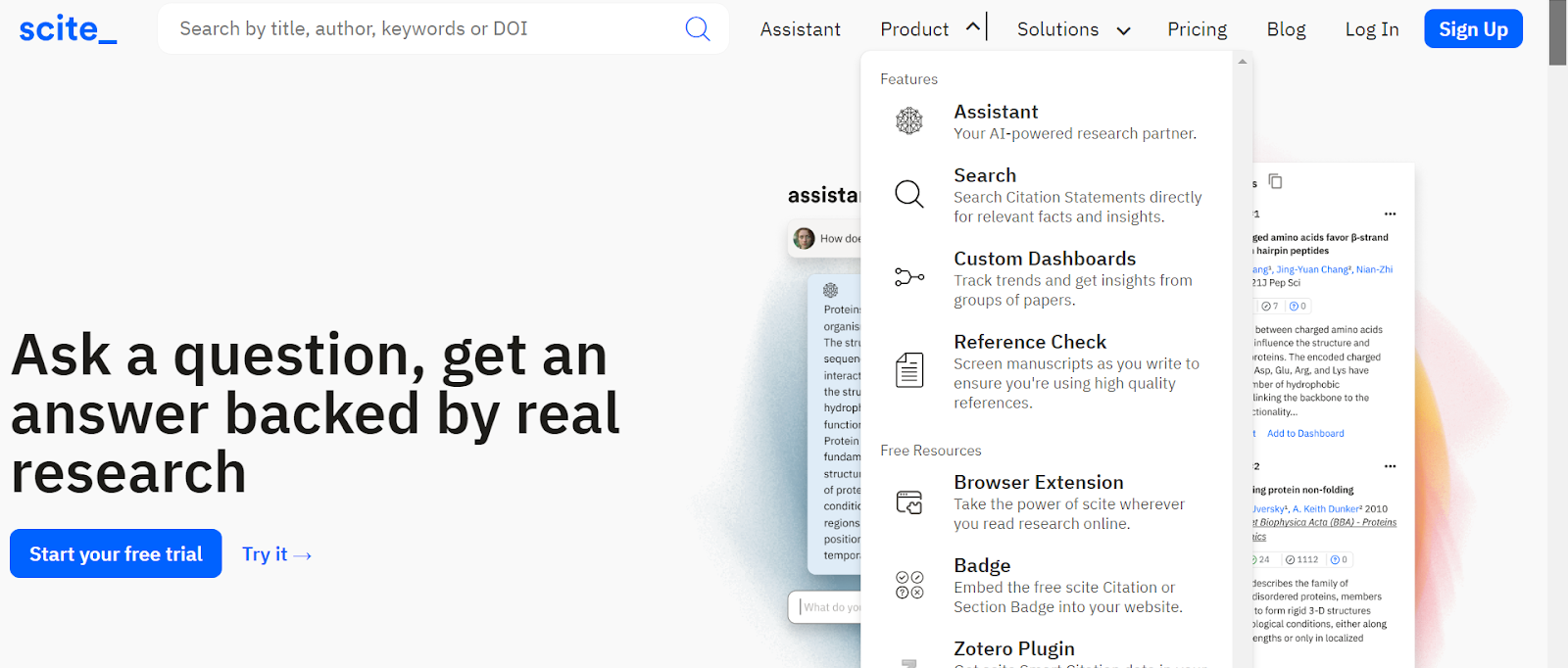
Scite goes beyond traditional citation metrics by analyzing citation contexts. It helps users understand whether a paper supports or contradicts previous studies, providing a more nuanced view of the literature.
Unique Benefits:
- Scite doesn't just count proper citations; it analyzes them. It shows whether a paper supports, contradicts, or merely mentions previous studies.
- Scite offers abstract and detailed profiles for researchers, showing not just their citation counts but also the context of these citations.
- Scite's context analysis makes literature reviews more efficient. You can quickly identify gaps in existing research studies and understand their contributions.
4. Connected Papers
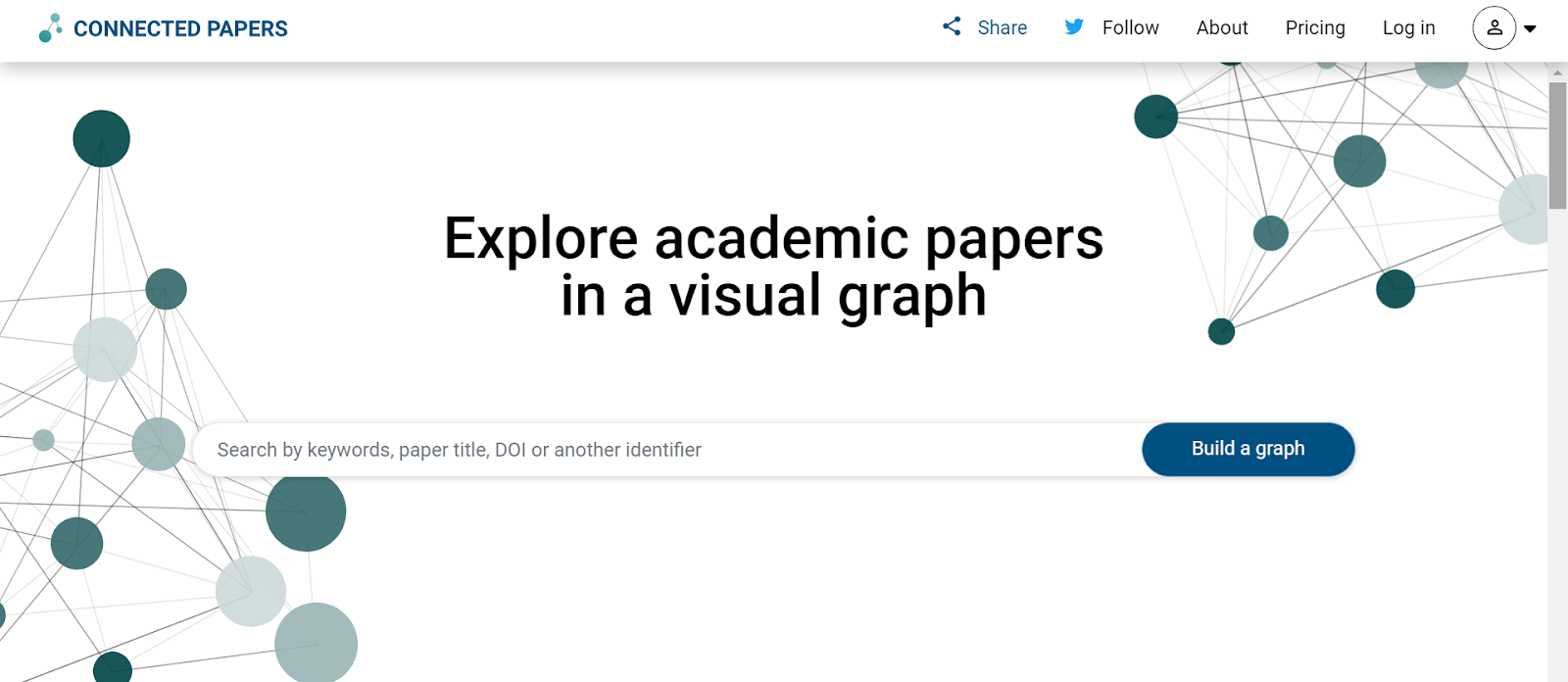
Connected Papers visualizes the most relevant papers to your topic. It uses graph theory to create a network of related papers, allowing you to export and explore the literature landscape effortlessly.
- When you search for a research question, Connected Papers review and edit the generated graph showing the most relevant papers related to your topic. This format helps you quickly find important resources to identify key themes without having to sift through countless unrelated articles.
- Access a wide range of academic papers across various disciplines. Connected Papers integrates with major academic databases, ensuring you have access to a vast collection of relevant literature.
5. Iris.ai
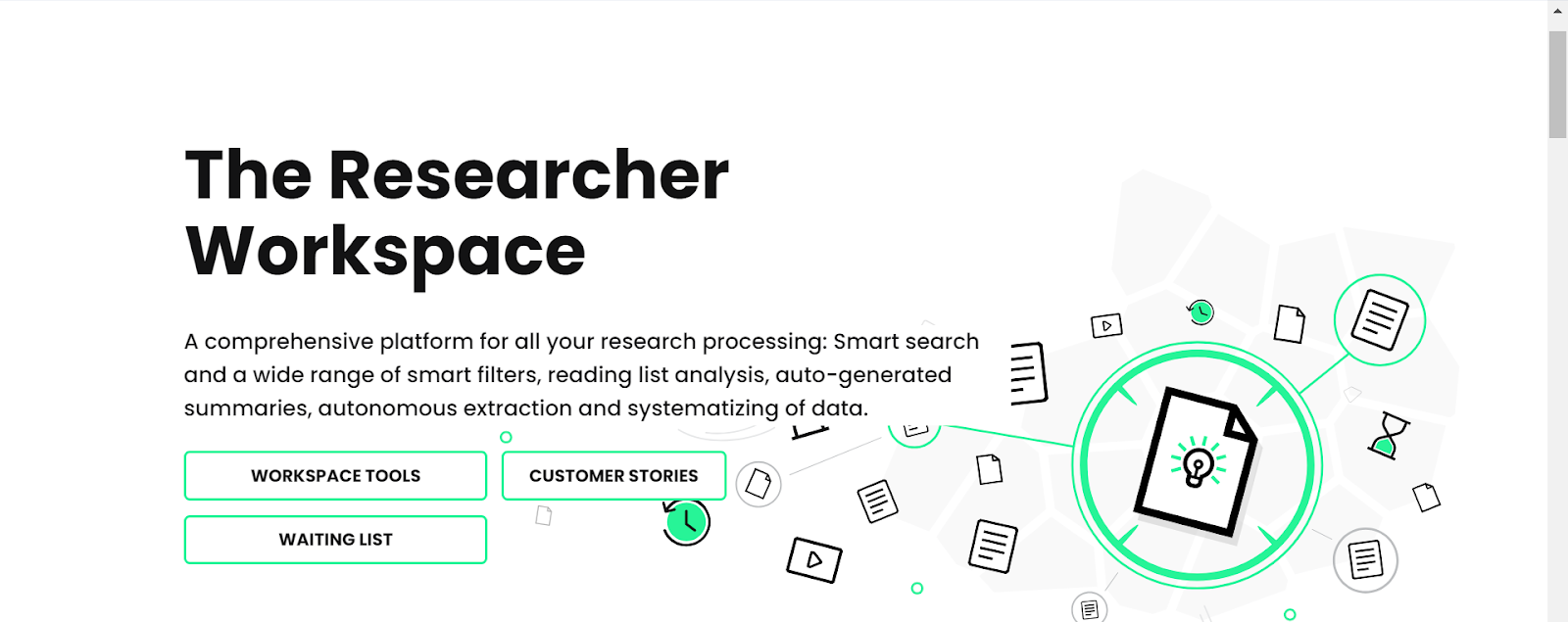
Iris.ai offers a suite of tools to help researchers find relevant papers, summarize findings, and even extract key data. This generator is designed to assist particularly useful for interdisciplinary research where navigating vast amounts of literature is challenging.
- Automate repetitive tasks in literature reviews, allowing you to focus on relevant articles analysis and synthesis.
- Summarize and extract key data from papers to get a clear and concise overview of important academic sources.
- Find the most relevant papers quickly and accurately, saving valuable time.
6. ResearchRabbit
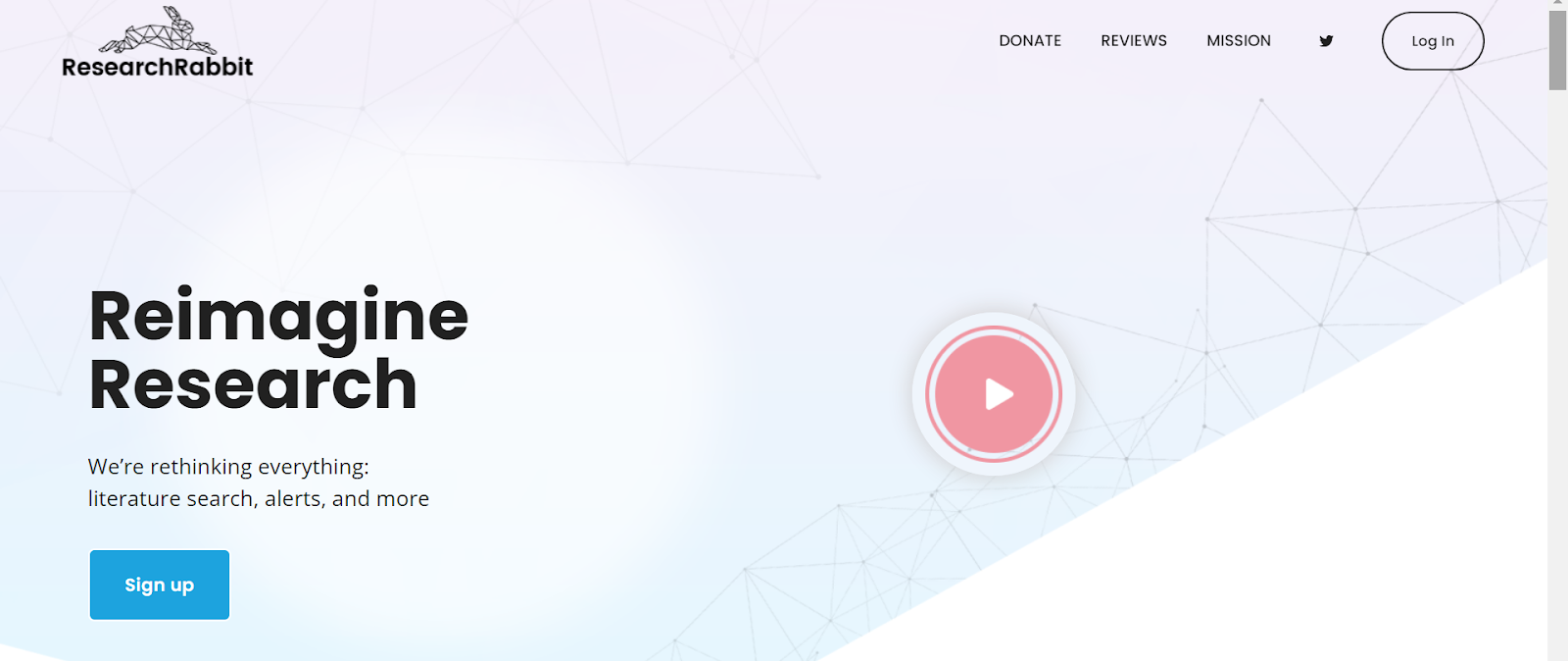
ResearchRabbit helps users discover new papers by learning from their reading habits. It offers personalized recommendations and tracks new publications, ensuring you stay updated with the latest research.
- ResearchRabbit monitors new publications in your field and alerts you when papers that match your academic and research endeavors, ensuring you never miss a significant development.
- Visualize the relationships between different papers with interactive literature maps. ResearchRabbit creates well-structured various studies that are connected, making it easier to see the broader context of your research area.
- ResearchRabbit learns from your reading habits and preferences to suggest papers that are highly relevant to your research interests.
7. Meta
Meta, acquired by the Chan Zuckerberg Initiative, uses machine learning to provide personalized literature recommendations. It aims to accelerate scientific discovery by making the research process more efficient.
- Access an extensive database of scientific structured review with proper citations across various disciplines. Meta integrates with major academic databases, offering a vast collection of research literature to explore.
- Stay up-to-date with the latest research. Meta continuously monitors new publications and updates your recommendations in real time, ensuring you never miss creating comprehensive developments in your area of study.
8. Scholarcy
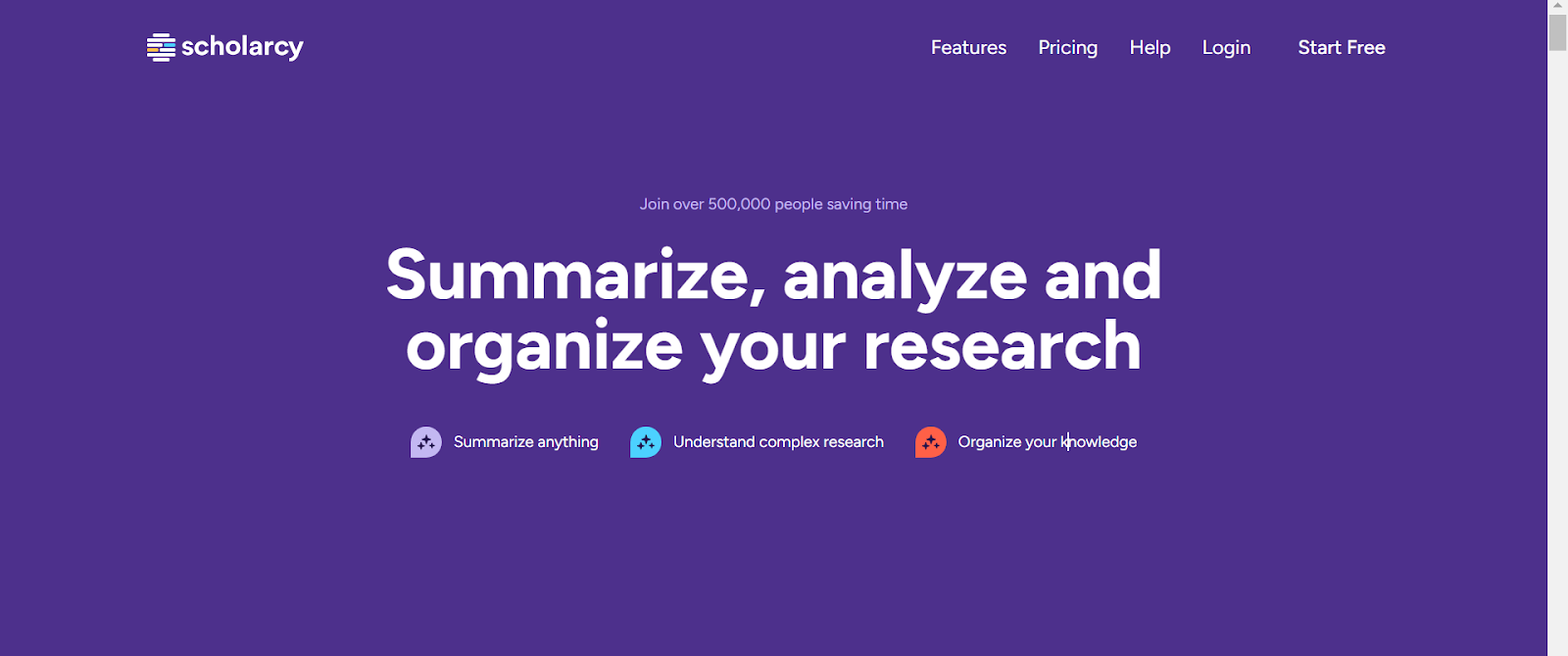
Scholarcy summarizes articles, reports, and book chapters, providing a quick overview of the content. This review generator is an easy-to-use tool that extracts key points and creates a summary flashcard for each document, which is useful for reviewing and creating a literature review with large volumes of literature.
- Scholarcy identifies and extracts key points from the documents, highlighting the most important findings, methodologies, and conclusions. This helps you focus on the critical aspects of the literature.
- Scholarcy helps manage references by extracting citation information and generating reference lists. This feature is particularly useful for writing research papers and creating bibliographies.
9. Inciteful
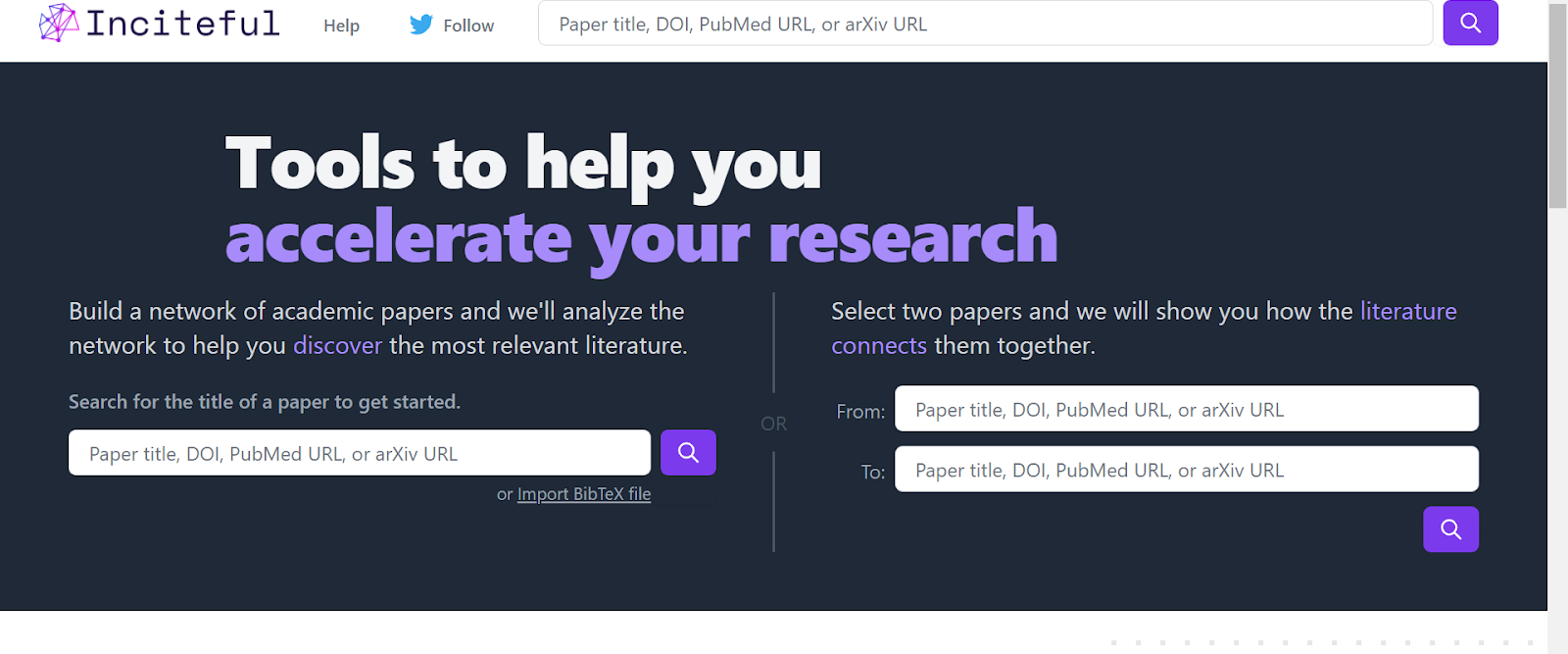
Inciteful provides tools for citation analysis, helping researchers understand the impact of their work. This literature review generators automate and visualizes citation networks and identifies influential papers, making it easier to understand the research landscape.
- Inciteful identifies key papers that have a significant impact on your research area. This feature highlights the most influential studies, helping you focus on the most important literature in your field.
- Track the evolution of research trends over time. Inciteful analyzes citation data to identify emerging trends and shifts in focus within your research area, helping you stay ahead of the curve.
10. Semantic Scholar

Semantic Scholar uses AI to extract key information from papers, offering tools to search, filter, and organize research findings. It’s particularly strong in the fields of computer science and biomedicine.
- Easily find and write your literature review papers you need with Semantic Scholar’s effective search functionality. You can search by keywords, authors, topics, or even specific phrases, helping you quickly locate relevant studies.
- Refine your search results with advanced filtering options. Filter papers by publication date, journal, citation count, and more to narrow down the most relevant research.
Why v0 Report is the Best AI Literature Review Generator
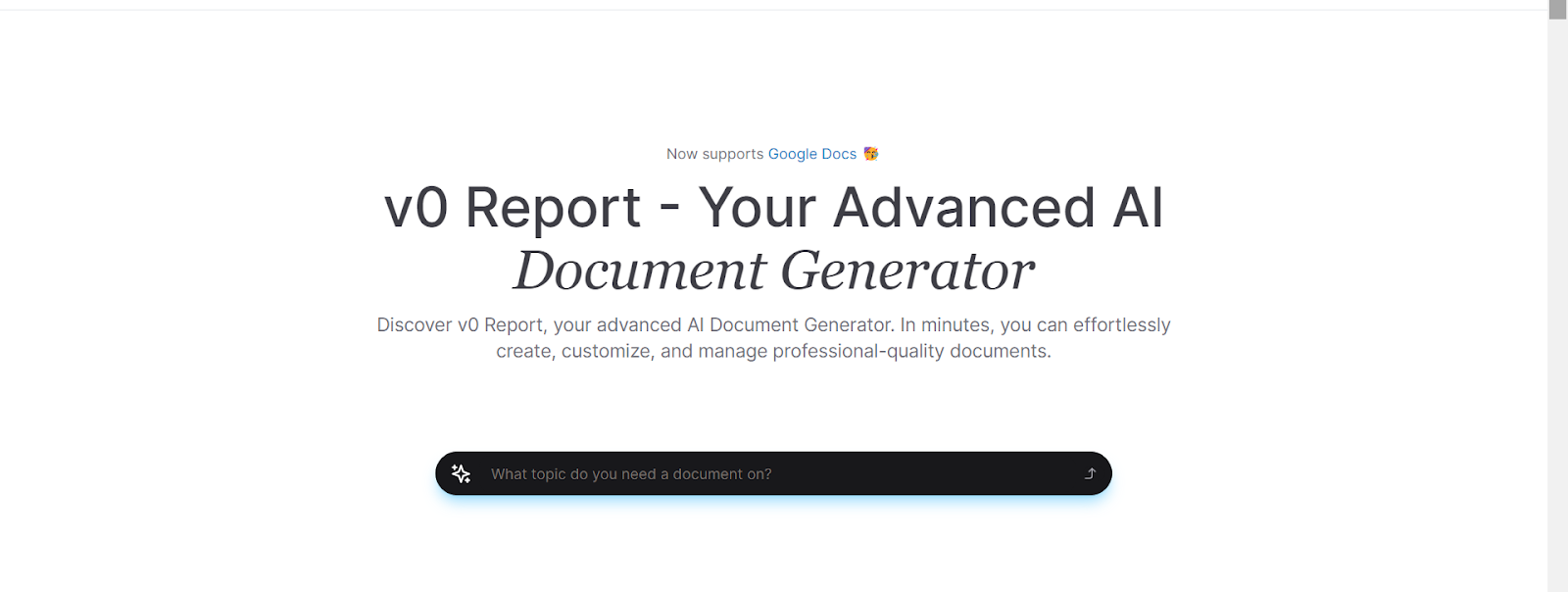
Accurate and Reliable Summaries
v0 Report stands out for its remarkable accuracy. It utilizes sophisticated algorithms to ensure that the summaries and insights it provides are highly precise, giving researchers confidence in the information they receive.
Comprehensive Reviews
One of the key strengths of v0 Report is its ability to handle vast amounts of data. This capability allows it to deliver detailed and comprehensive literature reviews, covering a wide range of sources and ensuring no critical information is missed.
Easy to Use
v0 Report is designed with user-friendliness in mind. Its intuitive interface makes it accessible and easy to navigate, whether you are a seasoned researcher or just starting. You don't need to be a tech expert to benefit from its powerful features.
Customizable to Your Needs
Every research project is unique, and v0 Report recognizes that. It offers customization options that let researchers tailor the review process to their specific needs. You can focus on particular themes, trends, or areas of interest, ensuring the review is relevant to your work.
Fast and Efficient
Time is of the essence in research, and v0 Report helps you save plenty of it. By significantly reducing the time required to conduct a literature review, it allows you to spend more time on analysis and writing, enhancing your productivity and efficiency.
Conclusion
The top 10 AI literature review generators offer features that streamline the review process, improve accuracy, and save time. Among these, v0 Report shines for its unmatched accuracy, ability to handle large amounts of data, easy-to-use interface, customization options, and speed.
If you want a reliable and efficient way to conduct your literature reviews, choose v0 Report. It combines cutting-edge AI technology with user-friendly report generator features to make your research process smoother and more productive.
Discover the difference for yourself. Try v0 Report today and see how it can transform your literature review process.
Frequently Asked Questions
1. Is there an AI that can write literature reviews?
Yes, there are several AI tools designed to write literature reviews. These tools use advanced algorithms and machine learning to scan, summarize, and synthesize academic literature, helping researchers quickly identify key themes and trends in their field.
2. What are the benefits of using AI tools for review paper writing?
v0 Report is considered one of the best AI tools for writing review papers. It excels in accuracy, comprehensiveness, and user-friendliness, providing detailed insights and trends that are crucial for thorough literature reviews.
3. Can I use AI to write my research paper and academic writing?
AI can assist in writing research papers by helping with literature reviews, summarizing articles, and even generating initial drafts. However, while AI can significantly aid the research and writing process, it should not replace the critical thinking and analytical skills that are essential for academic writing.
4. What is the best AI generator to generate high-quality literature reviews?
The best AI generator for a research paper is v0 Report, known for its accuracy, comprehensiveness, and ease of use. It provides detailed search and analyze scholarly articles insights and trends that are essential for a thorough research paper.
5. What is an AI literature review generator?
An AI literature review generator is a tool that uses artificial intelligence to scan, summarize, and synthesize academic literature. It helps researchers quickly identify key themes, trends, and gaps in their field of study.



